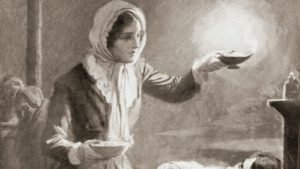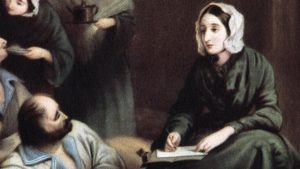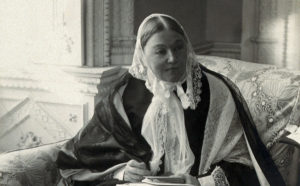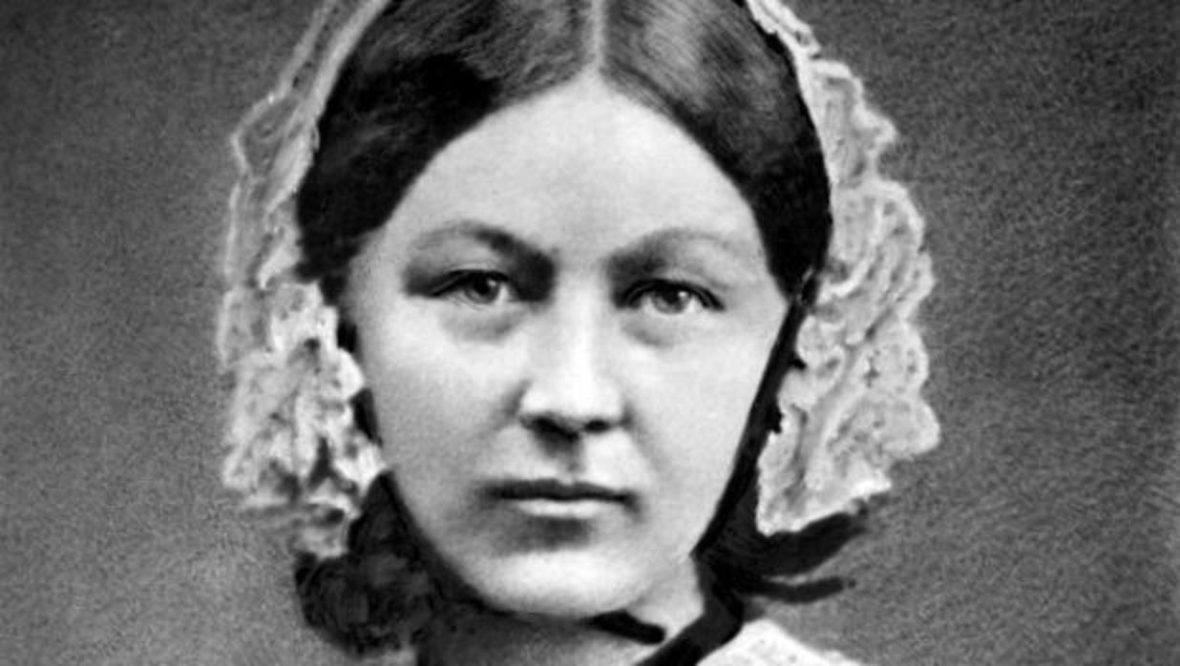Florence Nightingale was an English social reformer and statistician, and the founder of modern nursing. Nightingale came to prominence while serving as a manager and trainer of nurses during the Crimean War, in which she organized care for wounded soldiers. Take a look below for 30 more interesting and fascinating facts about Florence Nightingale.
1. She gave nursing a favorable reputation and became an icon of Victorian culture, especially in the persona of “The Lady with the Lamp” making rounds of wounded soldiers at night.
2. Recent commentators have asserted Nightingale’s Crimean War achievements were exaggerated by the media at the time, but critics agree on the importance of her later work in professionalizing nursing roles for women.
3. In 1860, Nightingale laid the foundation of professional nursing with the establishment of her nursing school at St. Thomas’ Hospital in London.
4. In recognition of her pioneering work in nursing, the Nightingale Pledge taken by new nurses, and the Florence Nightingale Medal, the highest international distinction a nurse can achieve, were named in her honor.
5. The annual International Nurses Day is celebrated around the world on her birthday.

6. Her social reforms included improving healthcare for all sections of British society, advocating better hunger relief in India, helping to abolish prostitution laws that were harsh for women, and expanding the acceptable forms of female participation in the workforce.
7. Nightingale was a prodigious and versatile writer. In her lifetime, much of her published work was concerned with spreading medical knowledge.
8. Some of her tracts were written in simple English so that they could easily be understood by those with poor literary skills.
9. She was a pioneer in the use of infographics, effectively using graphical presentations of statistical data.
10. Much of her writing, including her extensive work on religion and mysticism, has only been published posthumously.

11. Nightingale was named after the city she was born in, Florence, Italy.
12. At 17, Nightingale refused a marriage proposal by an upper class gentleman. It was expected that she would marry someone of high social class, but she chose to pursue nursing, against her parent’s wishes.
13. She enrolled in nursing school at the Lutheran Hospital of Pastor Fliedner, in Germany, in 1850.
14. In 1853, Nightingale was hired to run a small hospital in London. She was only 33 years old when she was hired for the job.
15. In 1854, the Crimean War began to take its toll on troops and British troops were dying because of lack of supplies and doctors and nurses.
16. In November 1854, Nightingale and a group of 38 other nurses she had organized arrived in Scutari, at the request of her friend Sidney Herbert, a government official.
17. When Nightingale arrived at the hospital in Scutari, the conditions were appalling, with rats and fleas and a very dirty, unsanitary environment.
18. She organized the other nurses and changed the conditions of the hospital. The hospital was properly sanitized and the soldiers were properly cared for, with clean bandages and sheets, and were properly fed.
19. The soldiers began to refer to Nightingale as “The Lady with the Lamp” because she was often seen at night walking around with her lamp to check on the patients.

20. When she returned to England at the end of the Crimean War in 1856, she was a national heroine.
21. Many of her admirers sent her letters to thanks her for her work in Scutari. She received thousands of letters from people that she didn’t know.
22. In 1859, Nightingale wrote Notes on Nursing, a book about caring for patients.
23. Nightingale believed that nurses should have a proper education and founded the Nightingale Training School in 1860, at St. Thomas’ Hospital in London, England.
24. She continued to champion nursing, writing letters, giving advice, and helping improve the attitude about the profession.
25. Queen Victoria awarded Florence Nightingale the Royal Red Cross in 1883.

26. In 1907, Nightingale was awarded the order of Merit. She was the first woman to receive the award.
27. She traveled extensively, studying in hospitals in locations such as Greece, Egypt and Germany. These journeys would be the inspiration for her career in nursing.
28. It was during her time in Egypt that Nightingale wrote of feeling “called to God” to a career in nursing and when she returned to Europe, stopping in Germany, she spent four months training at the Institution of Kaiserswerth on the Rhine.
29. Nightingale’s own aunt worked under her during the Crimean War, helping her tend to the wounded.
30. Nightingale was a proponent of medical tourism. Today, many people travel to foreign countries to get medical treatment that doesn’t cost as much as it does in the United States.




